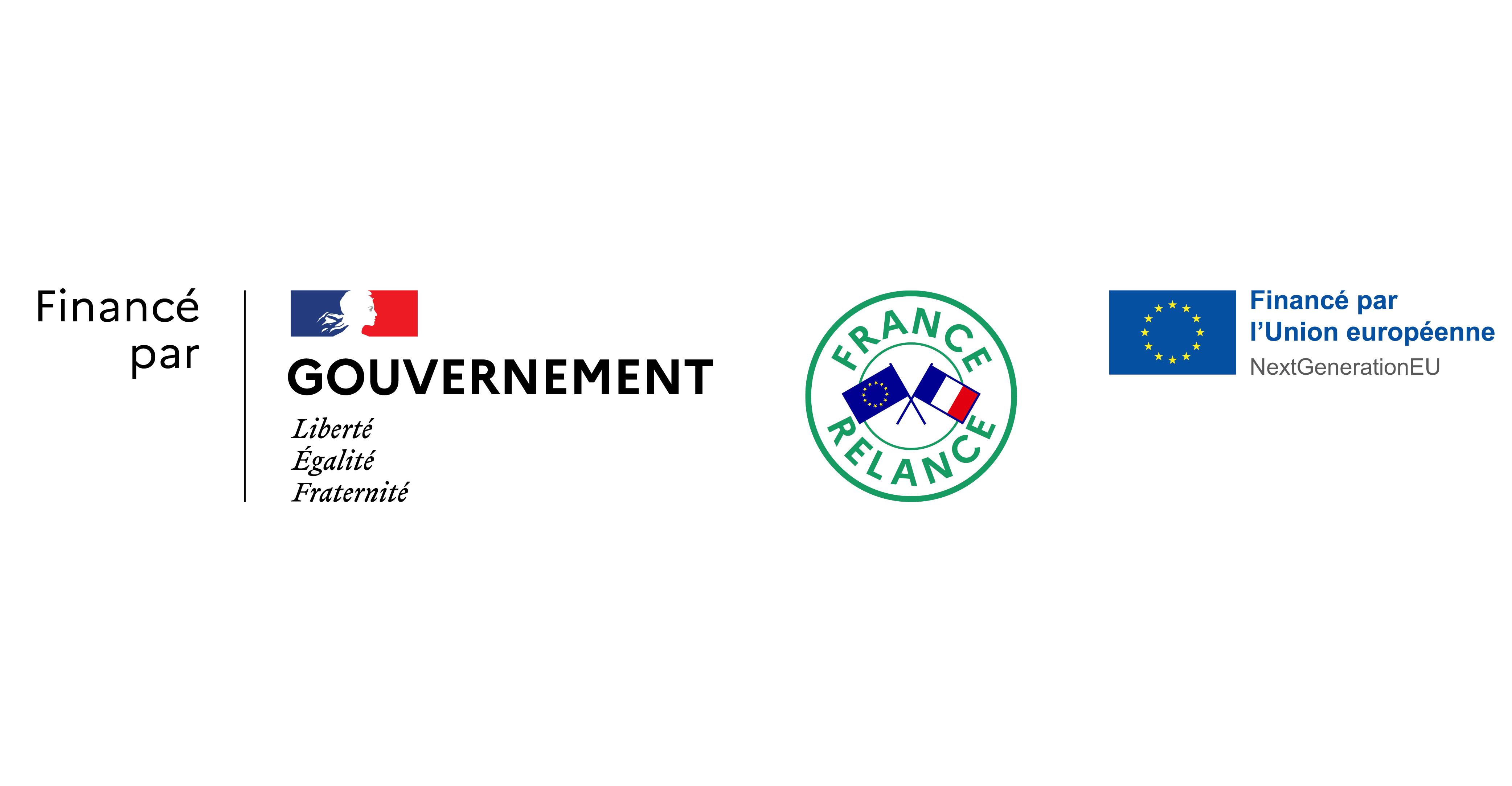AHFLO' project

In order to meet the growing demand and need for distance learning, accentuated by the health crisis, Inalco responded to the call for projects "Hybridisation des formations d'enseignement supérieur" (Hybridization of higher education training) launched by the French Ministry of Higher Education, Research and Innovation (Mesri), with the support of the Secrétariat général pour l'investissement (SGPI).
Of 65 projects submitted, 15 were selected as winners. The difficult back-to-school and academic year led Mesri to allocate a substantial seed capital fund to 19 other projects, including the AHFLO' project led by Inalco. This fund, available until August 2023, has enabled the Institute to roll out its digital development strategy in the language and civilization courses covered by the establishment.
The AHFLO' project enables the acceleration of the deployment of the establishment's long- and medium-term digital pedagogy policy, as defined within the framework of Inalco's Multiannual Contract for the years 2019-2023. One of the five axes of this contract is to "promote student success and professional integration", with the aim of "reinforcing the development of digital training".
The internal calls for projects, launched thanks to AHFLO', are a mechanism that is now a permanent part of our establishment's operations. It will make a lasting contribution to the more effective management of digital pedagogy in terms of the school's strategy, budgetary possibilities/constraints, quality approach and the pedagogical engineering and audio-visual capabilities of our teams.
AHFLO' internal calls for projects
Since November 2020, several internal calls for projects in digital pedagogical innovation have been launched for Inalco teachers as part of the AHFLO' project:
- AAP 2020-2021: 29 projects selected out of 31 submitted
- AAP 2021-2022: 20 projects selected out of 22 submitted
- AAP 2022-2023: 10 projects selected out of 15 submitted
- AAP 2023-2024: 8 projects selected out of 13 submitted
- AAP 2024-2025: 4 projects selected out of 6 submitted.
- APA 2025-2026: See the call for projects
News
After five editions that have resulted in some sixty projects, Inalco is launching a sixth call for internal projects in digital pedagogical innovation as part of AHFLO'.
Actions carried out as part of the AHFLO' 2020-2023 project
The AHFLO' project responds to the establishment's long-term policy by encouraging pedagogical innovation using digital technology and the design of distance-learning degree courses in Oriental languages and civilizations geared towards national and international distribution. In addition, the allocated funding has made it possible to support the transition to hybrid teaching mode in view of the health crisis at the start of the September 2020 academic year.
The AHFLO' project is part of a strong desire to offer and share digital teaching resources developed for hybrid training courses, targeting a wide audience, and aims to boost the attractiveness of Inalco's initial and continuing training courses.
Developing the hybridization of language and civilization courses in initial training
Developing the hybridization of language and civilization courses in initial training
The AHFLO' project supports the hybridization of Inalco's training courses through three teaching modalities:
- in face-to-face teaching as the preferred means of pedagogical interaction for students who can regularly visit the institution's premises,
- at a distance for students who are far away or prevented from attending; in certain rare languages, sometimes taught only at Inalco on a national, European or even international level, this choice aims to reach audiences that are inaccessible today,
- in a free mix of distance and face-to-face courses to best meet students' needs and constraints in a logic of course flexibility.
Distance courses are implemented primarily by setting up courses accessible asynchronously with a variable proportion of synchronous sessions, accompanied by a student monitoring and tutoring system.
Creating shared digital teaching resources
Creating shared digital teaching resources
The resources whose production has been remunerated with AHFLO' funding are for the most part published under the Creative Commons (BY-NC-ND) license favoring mutualization between ESR establishments.
The aim is to build up and share mutualized training resources and deposit them, depending on formats and target audience, on different platforms: Inalco's Moddle, FUN-Campus, LaCAS platform (Inalco).
MOOCs on France Université Numérique
Since 2016, three Inalco MOOCs, licensed under Creative Commons, have been accessible on the France Université Numérique (FUN) platform in arabic, Chinese and Czech.
- The Arabic, Chinese and Czech MOOCs have had 124,070 registrants over six years, including 17,066 in 2021 and 11,075 in 2022 on AHFLO' funding. These MOOCs offer A1 European Framework certification with university recognition (4 ECTS).
In 2022, Inalco offered two new language MOOCs in Hebrew (3,427 registrants) and Malagasy (1,695 registrants).
- In total, the five MOOCs currently distributed by Inalco on FUN have attracted 129,192 registrants, including 33,263 in the last two years and on AHFLO' funding.
Since 2024, three new MOOCs have been launched: Turkish, Indonesian and Quechua.
The MOOCs already published will be followed by others, currently under construction (Armenian, Burmese, Arabic dialects) or planned (Thai).
In addition to MOOCs providing an introduction to an oriental language, there are disciplinary MOOCs: Décloisonner les langues : approches plurielles du français (2024), Economie internationale (2024), literary translation, African literature) and MOOCs in the "Indigenous Languages and Cultures" series: dongba (2023), mooré (2024), mazatec (2025).
Resources produced on FUN are also offered for inter-institutional sharing on the FUN-Campus platform.
Mutualization of digital resources with ASPC and ESR institutions
Mutualization is carried out through the publication of SPOCs on FUN Campus (Arabic, Czech, Chinese), the distribution of introductory and undergraduate training modules (Arabic, Chinese) and the distribution of introductory distance language modules via FUN for the Master TAL (Paris3 and Paris10).
The institutions benefiting from the mutualized resources: Université de Toulouse Jean Jaurès, Université de Paris 1, Sorbonne Université, Université de Paris 8, Université de Lyon 2, Université de Lorraine, Sciences Po, Université de Paris 3 (Sorbonne nouvelle), Université de Nanterre (Sorbonne Paris Nord), École du Louvre; 2,500 students involved.
In the spirit of reciprocal mutualization, Sciences Po provides Inalco with digitized English resources that enable the hybridization of teaching. The resources have been integrated into Inalco's Moodle platform.
The "Préparation commune nationale à l'agrégation d'arabe en enseignement à distance" project is being developed jointly with Sorbonne université, Lyon2, ENS de Lyon and Aix-Marseille Université.
The Diploma in Islamology is being set up in collaboration with the University of Strasbourg, Aix-Marseille université and Lyon 3.
Creation of B2-level training modules on rare languages for the baccalauréat
These modules will be aimed at high-school students who wish to perfect their skills in rare languages not taught in secondary school and present them at the baccalauréat. Inalco will offer practical modules (written and oral comprehension and expression) designed to prepare students for these continuous assessment tests at the baccalauréat. The first module on offer, currently under development, will be devoted to the Armenian language.
Launch of an online conversation platform eTandem Inalco
The aim of this platform is to put language students in touch with native speakers through a guided educational activity based on thematic and cultural entries. This tool, already tested for Chinese, Korean and Swahili, will be extended to other languages and offered to all higher education and research establishments (ESR). It also aims to create international partnerships.
Distance learning within Continuing Education
Distance learning within Continuing Education
The continuing education department supported by AHFLO' is responding to growing demand by switching courses to hybrid and distance learning. To this end, it has upgraded its hardware and software solutions with a dedicated platform, and has embarked on training initiatives for trainers and staff to consolidate skills in this area. In order to validate this deployment and strategy, digital teaching engineers will be on hand at the start of the 2021 academic year.
AHFLO' will enable CE to make distance learning a permanent feature, structuring courses and enriching them both in terms of the content offered on the dedicated Moodle platform and the management of synchronous distance learning.
In evening classes, 22 out of 91 language courses, or 24%, are now offered entirely by distance learning. Since 2020, intensive language courses and summer internships have been offered by distance learning: 45% of those enrolled in intensive language courses take them by distance learning; 100% of the 72 enrolled in summer courses in Arabic dialects. The "East Asia" and "Arab World" courses for the University of Normandy are offered by distance learning. Since the start of the 2021 academic year, preparation for the agrégation in Chinese has been fully supported administratively by the FC and designed as a 100% distance learning course (synchronous zoom + Moodle FC platform).
Work in progress with FUN to open paying SPOCs managed by the FC based on MOOCs that have been played (Arabic, Chinese, Czech initially) following the example of the Arabic SPOC organized for the Rochefort Gendarmerie School.
The digital pedagogical engineering cluster: crucial support for the AHFLO' project
The digital pedagogical engineering cluster: crucial support for the AHFLO' project
The successful implementation of the AHFLO' project relies on a strengthening of the technological infrastructure and digital equipment to enable the production and mass distribution of training courses and modules. The design and production of training modules call for significant hardware, software, specific developments and licenses.
Teachers involved in AHFLO projects benefit from enhanced pedagogical engineering support. A training plan has been in place since 2020. Through hands-on workshops, online training (webinars and Zoom meetings), it aims to help teachers master digital tools, and above all, become self-sufficient in designing hybrid courses.
A complete overhaul of the Moodle tutorial spaces for consultation was also carried out in 2020 and contains guides on tools, but also advice on digital pedagogy in general, associated legislation and food for thought for any teacher wishing to embark on a hybrid training scheme.
.
AHFLO' Days
AHFLO' Days
As part of the closure of the AHFLO' project, scheduled for the end of August 2023, a face-to-face and distance learning event was organized in the Inalco Auditorium on June 14 and 15, 2023.
These two days provided an opportunity for the holders of AHFLO'-funded projects to present their achievements and to take stock of the situation, the challenges and the prospects for the hybridization of training in Oriental languages and civilizations.
During these days, Master 1 students from Inalco's Didactics of Languages (DDL) program exhibited the "scientific" posters they had produced on the theme of "One poster, a thousand words: digital issues in language teaching and learning".
Find out more: Les Journées AHFLO'
Projet AHFLO - Bilan final 10/11/2023 (781.35 KB, .pdf)
